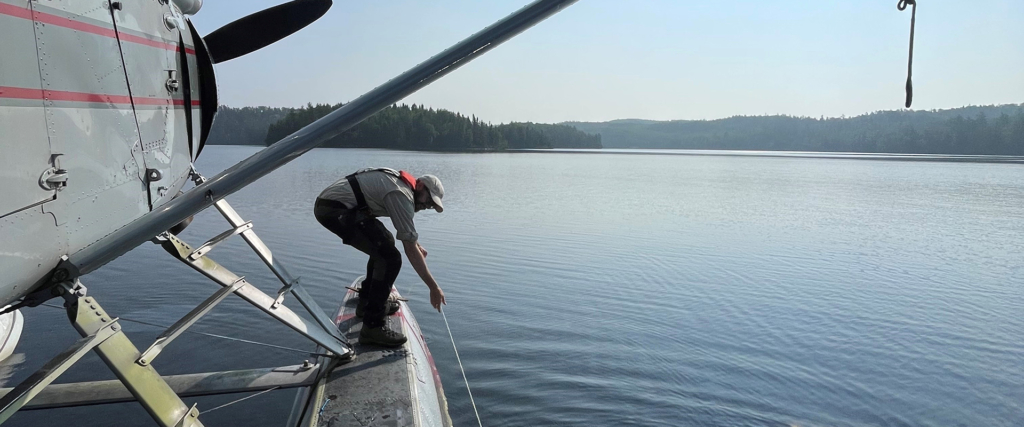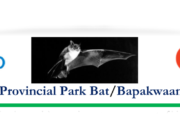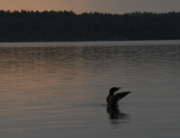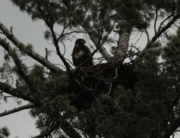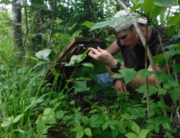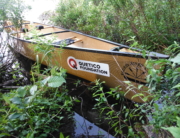Quetico Park is one of Ontario’s largest wilderness parks, encompassing over 1 million acres of rugged wilderness with regal red pine stands, large boreal wetlands, tranquil streams, and windswept lakes. We are incredibly proud to conserve these wild landscapes. To responsibly steward this protected area, we need to continually refine our understanding of it and its natural processes, which we do through a combination of monitoring activities and research endeavors.
The Quetico Foundation provides immense support to the science-based management of Quetico Park through their summer research team, who help the park biologist with data collection for monitoring and research. This year the Quetico Foundation summer research team worked hard to collect information critical to understanding the influence that fire has on lake ecosystems, the impact climate change may have on lake trout populations, and the status of breeding bird populations in the park, among other research and monitoring efforts.
Post-Fire Plankton Research
Fourteen lakes in Quetico Park were selected to research impacts of fire on plankton communities. This research helps to determine how these critical communities, that are fundamental to a lake’s food web, are influenced by adjacent forest fires. 2023 was the second year of this multi-year project, and we are excited to learn how fires can influence the plankton communities, and how these influences might manifest as one advances up the trophic levels of the lake.
This project supports Quetico Park’s draft aquatic resource stewardship plan and is being completed in collaboration with the Ministry of Natural Resources and Forestry.
Lake Trout and Climate Change
In Quetico Park, lake trout are among the most important cold-water species from both an ecological perspective, as they are keystone predators, and from a recreational perspective, as they are loved by anglers. However, as a cold-water species, lake trout are increasingly at risk from climate change. Currently, our work assesses the amount of suitable habitat currently available to lake trout and seeks to understand how this habitat may change as climate change and its associated effects progress. The summer research team collected data to aid in understanding the current lake trout habitat by measuring maximum and mean lake depths, surface conductivity, and water clarity.
Ontario Breeding Bird Atlas
This year, the summer research team also completed two songbird surveys for the Ontario Breeding Bird Atlas, using acoustic recording equipment to track which avian species are breeding in the park. The data collected is part of an Ontario-wide effort to map current distributions and relative abundances of breeding birds across the province. This data will be used to inform conservation strategies and guide provincial environmental policies.
Quetico Park is extremely thankful for the summer research team, and we are excited for next summer and the questions we can explore for the benefit of Quetico’s wilderness. We would not be able to continue our research and monitoring activities at the same level without the support of the Quetico Foundation and its donors.

